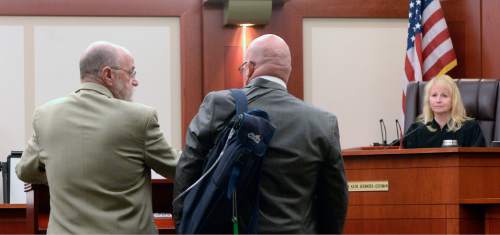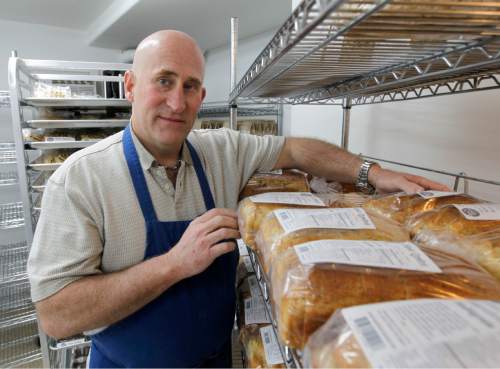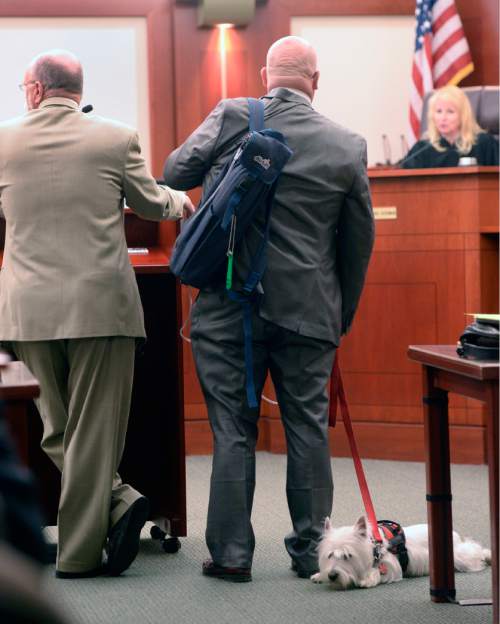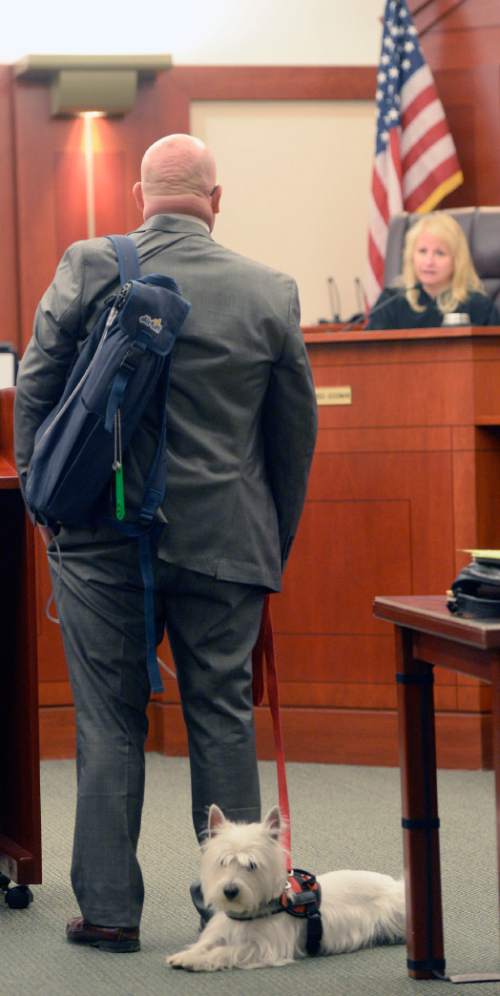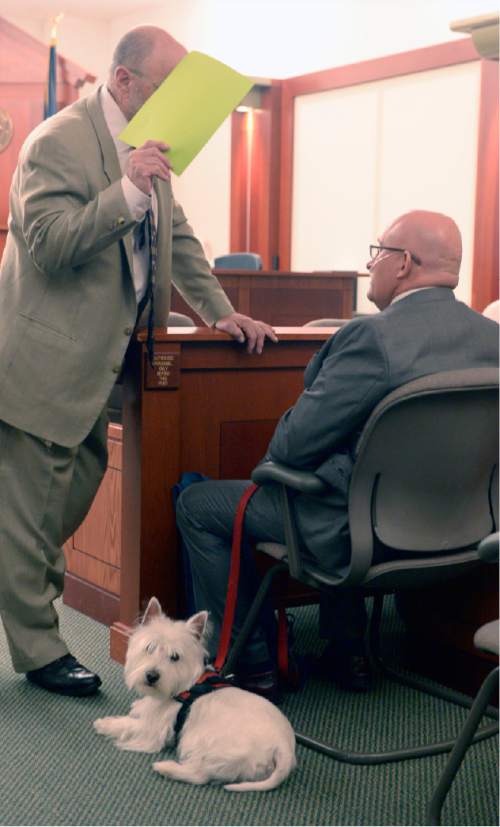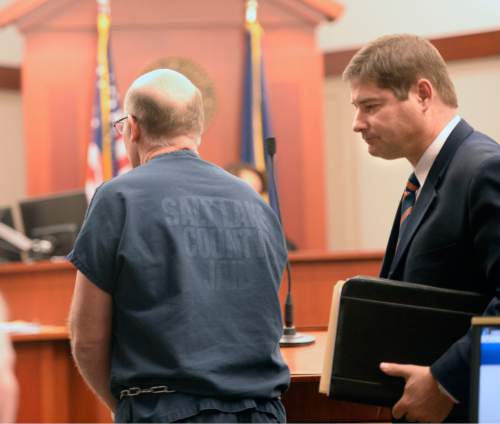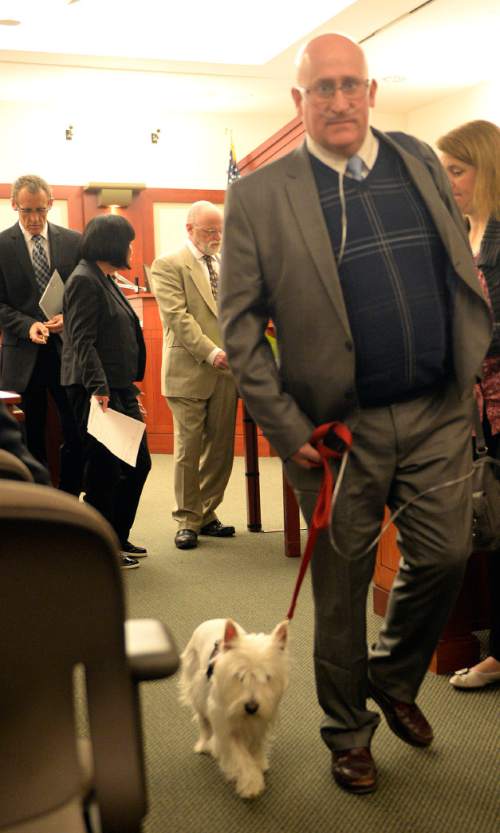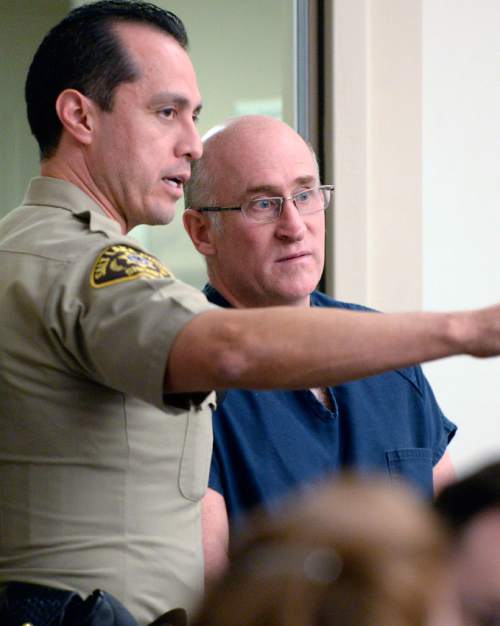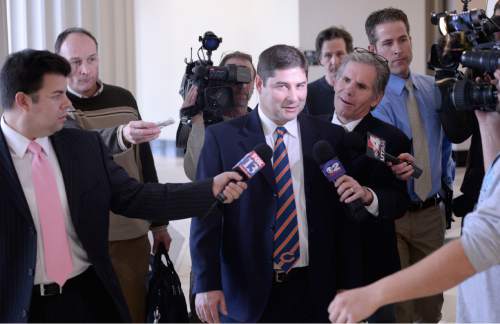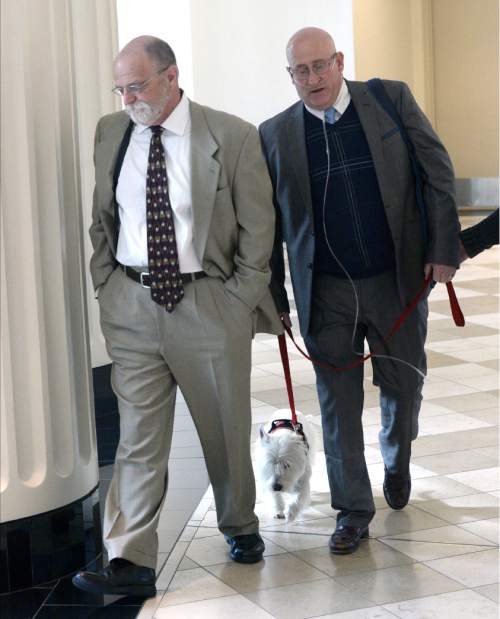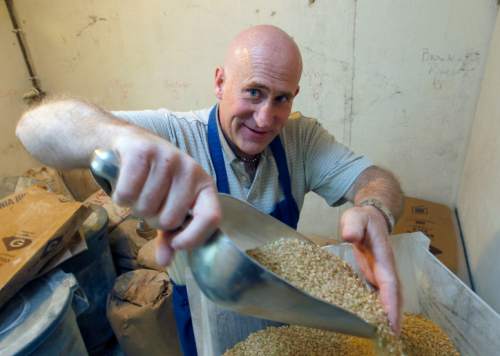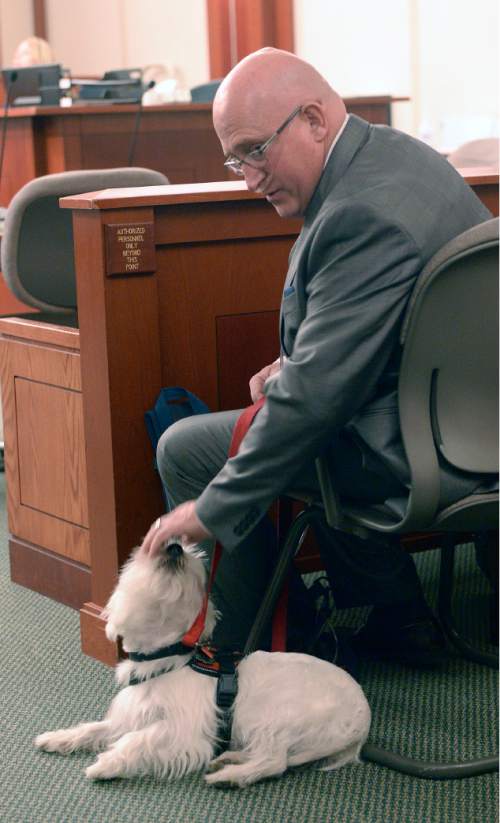This is an archived article that was published on sltrib.com in 2016, and information in the article may be outdated. It is provided only for personal research purposes and may not be reprinted.
Tim Lawson, a onetime confidant of former Utah Attorney General Mark Shurtleff who became the first person charged in the corruption scandal that rocked the attorney general's office and the state's political establishment, died Sunday.
He was 51.
Lawson was deeply involved in events that led to allegations of malfeasance against Shurtleff and his successor, former Utah Attorney General John Swallow, that left both former officeholders mired in criminal charges.
Lawson, called Shurtleff's "fixer" in some quarters, himself faced felony counts of tax evasion, witness tampering, obstruction of justice, engaging in a pattern of unlawful activity and Social Security fraud.
He died Sunday at Utah Valley Hospital in Provo. Jason Lawson said his brother, who had developed a hole in his esophagus, had been admitted Thursday for treatment of an infection and pain. By Saturday, the infection had spread. He was placed on life support after his lungs collapsed and his liver and kidneys failed, his brother said.
Tim Lawson was removed from life support Sunday at noon at the recommendation of doctors, with his wife, Nicole Lawson, and six of their seven children — a son is away serving a Mormon mission in Uruguay— at his side, Jason Lawson said.
Funeral services are being planned for next Saturday in Provo, he added.
Tim Lawson suffered from multiple illnesses, including multiple sclerosis and celiac disease, which brings a severe physical reaction to some grains. He had launched a gluten-free bakery.
Lawson had appeared in Salt Lake City's 3rd District Court a week ago. A trial had been set for April 2017. He had an oxygen tank and was accompanied by his service dog, a West Highland white terrier named Prince.
In December 2013, Lawson became the first person charged in connection with sweeping investigations of Shurtleff and Swallow. His multiple illnesses were exacerbated by the stress he had experienced dealing with the criminal allegations and the firestorm of media attention generated by the probes, Jason Lawson said.
"We all agreed that Tim had made some mistakes and Tim had made some bad choices and Tim needed to apologize and he needed to man up," Jason Lawson said. "But do we feel like he deserved to go to prison? No. We feel like he was picked on because he wasn't wealthy and he was not a member of the big boys' club in politics or religion."
Shurtleff and Swallow were charged in 2014 and pleaded not guilty to myriad criminal offenses in separate cases.
Shurtleff's case was dismissed last month at the request of the chief prosecutor, Davis County Attorney Troy Rawlings, who said federal agencies had failed to provide key evidence and that a recent U.S. Supreme Court decision had narrowed the scope of public corruption prosecutions. Rawlings also cited Shurtleff's agreement to cooperate in other investigations the prosecutor has undertaken.
Swallow, who is being prosecuted by Salt Lake County District Attorney Sim Gill, is scheduled to go to trial in February 2017.
Shurtleff and Swallow were likely potential witnesses in Lawson's case, just as Lawson had been expected to testify in trials for both former attorneys general.
On Sunday, Gill said Lawson was at the nexus of much of what happened in the Shurtleff and Swallow probes. Of course, the prosecutor said, the cases brought by his office against Lawson will now be dismissed.
"First and foremost, though, our condolences go to his family for their loss," he said. "He was a family person, and they are the first concern, everything else is secondary."
Rawlings shared Gill's concern for Lawson's loved ones and called his death "untimely." Lawson was poised to play a role in the Davis County attorney's efforts to seat a grand jury related to wider allegations of corruption that involve investigators, prosecutors and high-ranking political and business leaders in Utah and Washington.
"He was absolutely willing to assist the state of Utah before a potential grand jury and any other proceedings," Rawlings wrote in an email. "Unfortunately, he passed prematurely, never having the opportunity to test the state of Utah's evidence."
Prosecutors say Lawson, a Provo businessman who ran unsuccessfully for the Republican nomination for governor in 2000, attempted to threaten Utah business executives seeking Shurtleff's ear or aid in incidents dating back to 2008.
Court documents allege Lawson attempted to intimidate investors of Marc Sessions Jenson, a businessman who had been charged with fraud as part of a now-defunct plan to develop an exclusive ski and golf resort near Beaver. In January 2015, a jury cleared Jenson of those counts.
Lawson also was accused of going after Utah businessman Darl McBride, who has stated that Lawson threatened to have him beaten up if he didn't take down a website critical of businessman Mark Robbins. McBride said Robbins, a Jenson associate, owed him money.
According to charging documents, Lawson characterized himself as being like "Porter Rockwell" — the legendary enforcer of early Mormon leaders Joseph Smith and Brigham Young — and said that he took care of things for Shurtleff.
Court documents painted a portrait of cozy connections among Lawson, Shurtleff and Swallow. All three visited Jenson's ritzy Southern California villa together in 2009. Swallow and Lawson exchanged more than 680 text messages and phone calls between April 2009 and March 2013. More calls and texts continued until at least September.
From January to November 2009, Jenson paid Lawson $120,000, charging documents alleged, to "gain access to Shurtleff and to influence, on Jenson's behalf, potential witnesses and/or victims in Jenson's criminal cases and/or anticipated civil litigation."
Lawson did not pay taxes on the income, according to the charges.
Investors who said they were scammed by Jenson received hostile text messages and emails from Lawson when they were trying to recoup their money, according to previously released records.
In 2010, Swallow, then a chief deputy attorney general to Shurtleff, got a warning from a colleague to steer clear of Lawson.
"Lawson is the guy that is going to bring down the house of cards," Swallow's co-deputy, Kirk Torgensen, wrote in an email.
Jason Lawson said his brother considered himself a sort of "unlicensed lobbyist," whose interest in politics had allowed him to rub shoulders with and befriend some of Utah's political elite. All Tim Lawson ever tried to do, his brother said, was help others makes connections — work for which he sometimes got paid.
"He never felt like what he was doing was wrong," Jason Lawson said. "He was wrapped up in the political world, that world of 'you scratch my back and I'll scratch yours.' But he didn't have the same protection as everybody else."
Jason Lawson, 44, called his older brother "easygoing" and a good guy" who was one of 10 children in a close family. Seven of the siblings live in Utah County and see one another often.
He said he believes his brother had done "some dumb stuff," but never really intended to hurt anyone. "He got caught up in a world he didn't belong in."
Tim Lawson's attorney, Ron Yengich, said the evidence ultimately would have shown that his client associated with a lot of people who attempted to use political power to advance themselves or their own agendas.
"Tim always maintained that he was not the man that he was portrayed to be as the 'fixer,' " Yengich said Sunday. "The real 'fixers' have never been named. I'm sure they are breathing a little bit easier now. The people that were involved in this whole thing should come forward and be honest about their roles in it."


